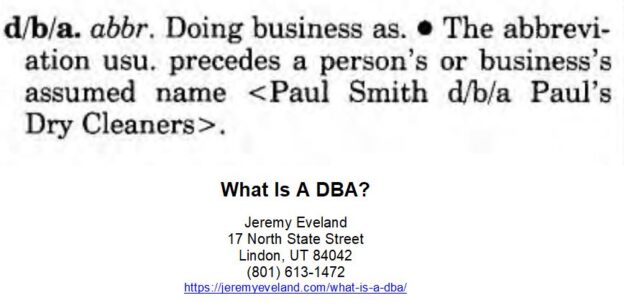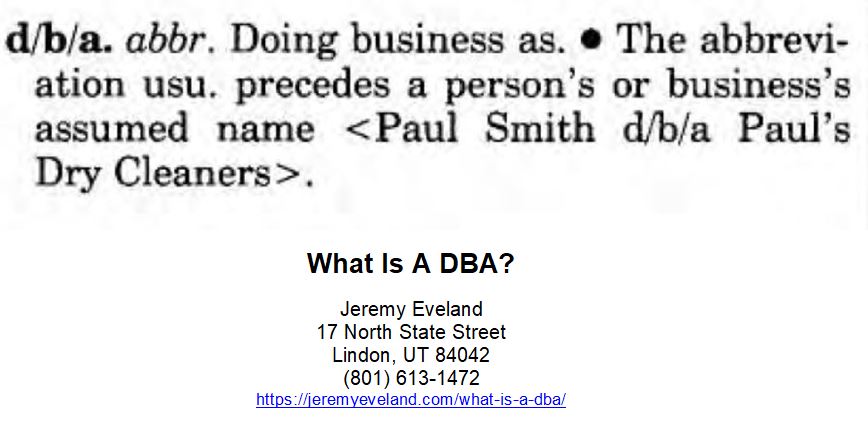Startup Attorney
-
Legal Topics
“Startup Attorney: Your Legal Partner for Business Success”
Introduction
Startup Attorney is a legal services firm that specializes in providing legal advice and assistance to entrepreneurs and startups. We understand the unique needs of startups and provide comprehensive legal services to help them succeed. Our team of experienced attorneys has extensive experience in the startup space and can provide advice on a wide range of legal issues, from formation and financing to intellectual property and employment law. We are committed to helping startups navigate the legal landscape and achieve their goals.
The Benefits of Working with a Startup Attorney
Working with a startup attorney can be a great way to ensure that your business is legally compliant and protected from potential legal issues. A startup attorney can provide invaluable advice and guidance on a variety of legal matters, from forming a business entity to protecting intellectual property. Here are some of the key benefits of working with a startup attorney.
1. Expertise: A startup attorney has the expertise and experience to provide sound legal advice and guidance on a variety of legal matters. They can help you understand the legal implications of your business decisions and ensure that you are in compliance with all applicable laws and regulations.
2. Cost Savings: Working with a startup attorney can save you money in the long run. By having an experienced attorney on your side, you can avoid costly legal mistakes and disputes that can arise from not having the proper legal advice.
3. Time Savings: Working with a startup attorney can save you time. An experienced attorney can help you navigate the legal process quickly and efficiently, allowing you to focus on running your business.
4. Peace of Mind: Working with a startup attorney can provide peace of mind. Knowing that you have an experienced attorney on your side can help you feel more confident in your business decisions and help you avoid potential legal issues.
Overall, working with a startup attorney can be a great way to ensure that your business is legally compliant and protected from potential legal issues. An experienced attorney can provide invaluable advice and guidance on a variety of legal matters, from forming a business entity to protecting intellectual property. By having an experienced attorney on your side, you can save time, money, and have peace of mind knowing that your business is legally compliant.
Understanding the Legal Implications of Starting a Business
Starting a business can be an exciting and rewarding endeavor, but it is important to understand the legal implications of doing so. Depending on the type of business, there are a variety of legal considerations that must be taken into account.
First, it is important to determine the type of business entity that best suits the needs of the business. Common business entities include sole proprietorships, partnerships, limited liability companies (LLCs), and corporations. Each type of entity has different legal implications, such as the amount of personal liability the owners have, the amount of paperwork required, and the tax implications.
Second, it is important to understand the various laws and regulations that apply to the business. Depending on the type of business, there may be local, state, and federal laws that must be followed. For example, businesses that sell products or services may need to comply with consumer protection laws, while businesses that employ workers may need to comply with labor laws.
Third, it is important to understand the various contracts and agreements that may be necessary for the business. These may include contracts with suppliers, customers, and employees, as well as leases for office or retail space. It is important to ensure that these contracts are legally binding and protect the interests of the business.
Finally, it is important to understand the various taxes that may be applicable to the business. Depending on the type of business, there may be taxes on income, sales, and payroll. It is important to understand the various tax laws and ensure that the business is in compliance.
Starting a business can be a rewarding experience, but it is important to understand the legal implications of doing so. By understanding the various types of business entities, laws and regulations, contracts and agreements, and taxes that may be applicable, entrepreneurs can ensure that their business is legally compliant and protected.
How to Choose the Right Startup Attorney for Your Business
Starting a business is an exciting endeavor, but it can also be a daunting one. It is important to have the right legal advice and representation to ensure that your business is set up correctly and that you are protected from potential legal issues. Choosing the right startup attorney for your business is essential to the success of your venture.
When selecting a startup attorney, it is important to consider their experience and expertise. Look for an attorney who has experience in the specific area of law that your business requires. Ask for references and check their credentials to ensure that they are qualified to handle your legal needs.
It is also important to consider the attorney’s fees. Ask for a detailed breakdown of their fees and services so that you can compare them to other attorneys. Make sure that you understand the terms of the agreement and that you are comfortable with the payment structure.
It is also important to consider the attorney’s communication style. You want to make sure that you can easily communicate with them and that they are responsive to your questions and concerns. Ask for a consultation to get a better sense of their communication style and to make sure that you are comfortable working with them.
Finally, consider the attorney’s reputation. Ask for references and read online reviews to get a better sense of their reputation. You want to make sure that you are working with an attorney who is respected in the legal community and who has a good track record of success.
Choosing the right startup attorney for your business is essential to the success of your venture. Take the time to research and compare attorneys to ensure that you are getting the best legal advice and representation for your business.
The Role of a Startup Attorney in Raising Capital
A startup attorney plays an important role in the process of raising capital for a startup. The attorney’s primary responsibility is to ensure that the startup is in compliance with all applicable laws and regulations. This includes providing advice on the formation of the company, the issuance of securities, and the negotiation of contracts.
The attorney will also help the startup navigate the complex process of raising capital. This includes helping the startup understand the different types of capital available, such as venture capital, angel investors, and crowdfunding. The attorney will also help the startup understand the legal implications of each type of capital and the associated risks.
The attorney will also help the startup draft and negotiate the terms of any investment agreements. This includes ensuring that the terms are fair and reasonable for both the investor and the startup. The attorney will also help the startup understand the tax implications of any investments and advise on the best way to structure the investment.
Finally, the attorney will help the startup protect its intellectual property. This includes helping the startup register any trademarks or copyrights, and drafting any necessary non-disclosure agreements.
In summary, a startup attorney plays an important role in the process of raising capital for a startup. The attorney’s primary responsibility is to ensure that the startup is in compliance with all applicable laws and regulations. The attorney will also help the startup navigate the complex process of raising capital, draft and negotiate the terms of any investment agreements, and protect the startup’s intellectual property.
Navigating Intellectual Property Law as a Startup
As a startup, navigating intellectual property law can be a daunting task. It is important to understand the various types of intellectual property and the laws that protect them. This article will provide an overview of the different types of intellectual property and the laws that protect them.
The first type of intellectual property is copyright. Copyright law protects original works of authorship, such as books, music, and artwork. Copyright law grants the author exclusive rights to reproduce, distribute, and publicly perform or display the work. Copyright protection lasts for the life of the author plus 70 years.
The second type of intellectual property is trademark. Trademark law protects words, symbols, and designs that identify a product or service. Trademark law grants the owner exclusive rights to use the mark in commerce. Trademark protection lasts as long as the mark is used in commerce.
The third type of intellectual property is patent. Patent law protects inventions and processes. Patent law grants the inventor exclusive rights to make, use, and sell the invention. Patent protection lasts for 20 years from the date of filing.
The fourth type of intellectual property is trade secret. Trade secret law protects confidential information, such as formulas, recipes, and customer lists. Trade secret law grants the owner exclusive rights to keep the information secret. Trade secret protection lasts as long as the information remains secret.
It is important for startups to understand the various types of intellectual property and the laws that protect them. By understanding these laws, startups can protect their intellectual property and ensure that their ideas are not stolen or misused.
Q&A
1. What is a startup attorney?
A startup attorney is a lawyer who specializes in providing legal advice and services to startup companies. They are knowledgeable in areas such as corporate law, intellectual property law, venture capital, and other areas related to the formation and operation of a startup.
2. What services does a startup attorney provide?
A startup attorney can provide a variety of services, including helping to form a business entity, drafting contracts, providing advice on intellectual property protection, negotiating venture capital investments, and providing guidance on regulatory compliance.
3. What qualifications should I look for in a startup attorney?
When looking for a startup attorney, it is important to find someone who is knowledgeable in the areas of law that are relevant to your business. Additionally, you should look for an attorney who has experience working with startups and understands the unique challenges that they face.
4. How much does it cost to hire a startup attorney?
The cost of hiring a startup attorney will vary depending on the complexity of the legal services needed and the attorney’s experience. Generally, startup attorneys charge an hourly rate or a flat fee for their services.
5. What are the benefits of hiring a startup attorney?
Hiring a startup attorney can provide a number of benefits, including providing legal advice and guidance, helping to protect your intellectual property, negotiating venture capital investments, and providing guidance on regulatory compliance. Additionally, having an experienced attorney on your side can help to ensure that your business is properly structured and that all legal requirements are met.
Startup Attorney Consultation
When you need legal help with a startup, call Jeremy D. Eveland, MBA, JD (801) 613-1472 for a consultation.
Jeremy Eveland
17 North State Street
Lindon UT 84042
(801) 613-1472
Related Posts
Business Succession Lawyer South Jordan Utah
Business Succession Lawyer Lehi Utah
Business Succession Lawyer Millcreek Utah
Business Succession Lawyer Murray Utah
Business Lawyer Salt Lake City Utah
Salt Lake City Business Transaction Attorney
Business Succession Lawyer Herriman Utah
What Are The Advantages Of Hiring A Business Lawyer?
Business Succession Lawyer Logan Utah
What Is The Relationship Between Business Law And Economies?
Business Transaction Lawyer West Valley City Utah
Do I Need A Permit To Start A Business In Utah?



















